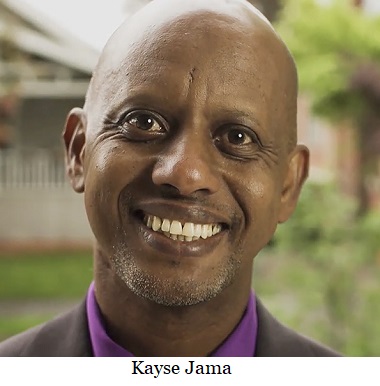Spending on disadvantaged individuals, families, businesses and communities
The Oregon Senate passed
SB 1579 on a vote of 17 to 9, along party lines.
This legislation directs Business Oregon to implement an Economic Equity Investment Program to award grants to qualified organizations that
provide culturally responsive services to disadvantaged individuals, families, businesses and communities.
The Joint Committee on Ways and Means appropriated $15 million General Funds for the Economic Equity Investment Fund for biennium ending June 30, 2023.
That is considerably less than the $50 million requested in the original bill. Perhaps they wanted to recoup most of the funds held in litigation?
Senator Tim Knopp (R-Bend) made the Ways and Means committee aware that the Emergency Board appropriated $60 million last year with similar goals, which resulted in several law suits, some of which are ongoing. The Legislative Council opinion suggests it is possible that part of this bill will be ruled unconstitutional, which will expose the state to more lawsuits.
The debate of constitutionality was argued with Senator Kate Lieber (D-Beaverton) defending the bill drafting to avoid lawsuits, but Senator Bill Hansen (R-Athena) also alerted the committee against potential lawsuits and the added expense to the state. Chair Representative Tawna Sanchez (D-Portland) referred to the LC opinion stating someone had to experience a loss before a suit could be brought. Representative Janelle Bynum (D-Clackamas) took the discussion on the legality as a personal attack. It was unnecessary since the committee is loaded 14-8 for her party.
A lot of the discussion was aimed at the disparity of Blacks. The US Department of Labor, average wages broken down based on $1.00
earned by a White worker, a Black person is 1.99% of the work force and earns $0.92. Oregon is the fifth highest paying Black wages next to
Idaho, Montana, Wyoming and Hawaii. Hispanic/Latino at 13.34% and Native Americans as 0.89% earns $0.67, Oregon is 42 compared to
other states. Asian-Pacific Islanders are 5.31% of the work force earning $1.10 ranked 13th compared to other states.
This bill directs Oregon Business Development Department to develop and implement an Economic Equity Investment Program to award
grants to organizations that provide culturally responsive services to support economic stability, self-sufficiency, wealth building and
economic equity among disadvantaged individuals, families, businesses and communities whose future is at risk.
At risk is two or more economic equity risk factors defined as:
- Experience of discrimination because of race or ethnicity
- English language proficiency
- Citizenship status
- Socioeconomic status
- Residence or operation in a rural location
Business Oregon's Strategic Plan for 2018-2022 notes that persistent
economic disparities exist among people of color and other
represented communities, despite growth rates higher than the state's
overall population. Household income and wages are lowest for
Oregon's African American, Native American, and Hispanic
communities. The Strategic Plan states that these groups are also
disadvantaged in their access to capital and are underrepresented in
employment within the professional and technical services sectors.
Akasha Lawrence Spence (D-Portland), Chief Sponsor of SB 1579, said,
“This measure is necessary to help communities from our rural center
to our urban core become self-sufficient, attract private investment and
become resilient in the face of economic shocks.â€
A D V E R T I S E M E N T

A D V E R T I S E M E N T
Senator Kayse Jama (D-Portland), Co-Chief Sponsor, said, “We are in an
immense moment of social reckoning in this country. I have spent
nearly every one of 20 years in community advocacy focused on police
and criminal justice reform. I am a Co-Chief Sponsor of SB 1579 because
I know creating economic opportunities for all is fundamental to
creating a fairer future for Oregonians who have been left behind."
Organizations providing culturally responsive services pick and choose
winners and losers instead of a constitutional equality. It remains to be
seen what the courts say about fairness.
--Donna Bleiler| Post Date: 2022-03-02 10:28:43 | Last Update: 2022-03-02 17:39:57 |







